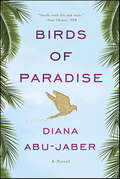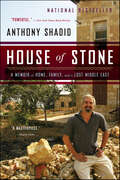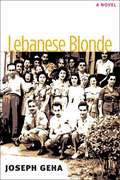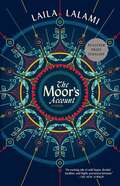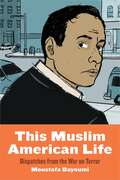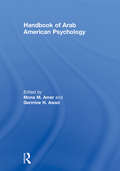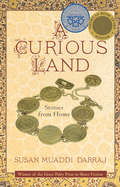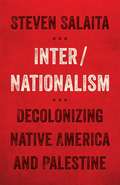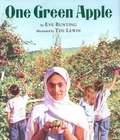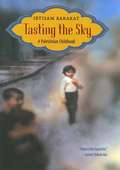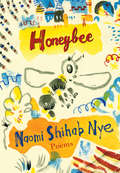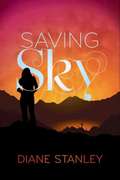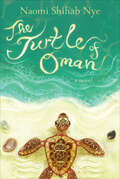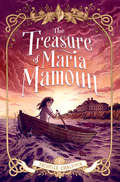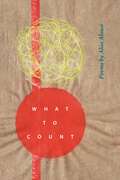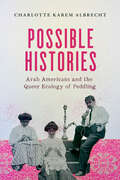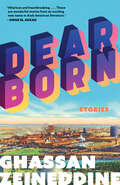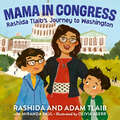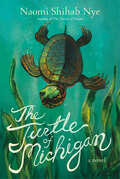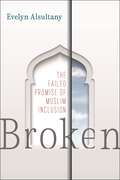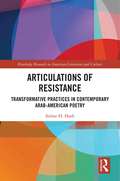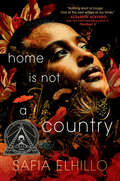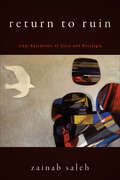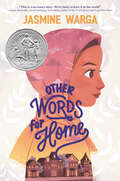Special Collections
Arab American Book Award
- Table View
- List View
| Year | Category | Award | Title | Author | Date Added | Action |
|---|---|---|---|---|---|---|
| 2012 | Fiction | Winner |
|
Diana Abu-Jaber | 04/02/2018 | |
| 2013 | Nonfiction | Winner |
|
Anthony Shadid | 04/02/2018 | |
| 2013 | Fiction | Winner |
|
Joseph Geha | 04/02/2018 | |
| 2015 | Fiction | Winner |
|
Laila Lalami | 04/02/2018 | |
| 2016 | Nonfiction | Winner |
|
Moustafa Bayoumi | 04/02/2018 | |
| 2016 | Nonfiction | Winner |
|
Germine H. Awad and Mona M. Amer | 04/02/2018 | |
| 2016 | Fiction | Winner |
|
Susan Muaddi Darraj | 04/02/2018 | |
| 2017 | Nonfiction | Winner |
|
Steven Salaita | 04/02/2018 | |
| 2007 | Young Adult / Children | Winner |
|
Eve Bunting and Ted Lewin | 04/02/2018 | |
| 2008 | Young Adult / Children | Winner |
|
Ibtisam Barakat | 04/02/2018 | |
| 2009 | Young Adult / Children | Winner |
|
Naomi Shihab Nye | 04/02/2018 | |
| 2011 | Young Adult / Children | Winner |
|
Diane Stanley | 04/02/2018 | |
| 2014 | Young Adult / Children | Winner |
|
Yvonne Wakim Dennis and Maha Addasi | 04/02/2018 | |
| 2015 | Young Adult / Children | Winner |
|
Naomi Shihab Nye | 04/02/2018 | |
| 2017 | Young Adult / Children | Winner |
|
Michelle Chalfoun | 04/02/2018 | |
| 2024 | Poetry | Honorable Mention |
|
Alise Alousi | 09/10/2024 | |
| 2024 | Nonfiction | Honorable Mention |
|
Charlotte Karem Albrecht | 09/10/2024 | |
| 2024 | Fiction | Honorable Mention |
|
Ghassan Zeineddine | 09/10/2024 | |
| 2023 | Children's Literature | Honorable Mention |
|
Miranda Paul and Rashida Tlaib and Adam Tlaib | 09/10/2024 | |
| 2023 | Young Adult | Honorable Mention |
|
Naomi Shihab Nye | 09/10/2024 | |
| 2023 | Nonfiction | Honorable Mention |
|
Evelyn Alsultany | 09/10/2024 | |
| 2021 | Nonfiction | Honorable Mention |
|
Sirene Harb | 03/23/2023 | |
| 2022 | Children/Young Adult | Honorable Mention |
|
Safia Elhillo | 03/23/2023 | |
| 2022 | Nonfiction | Honorable Mention |
|
Zainab Saleh | 03/23/2023 | |
| 2020 | Young Adult / Children | Honorable Mention |
|
Jasmine Warga | 11/10/2020 |
